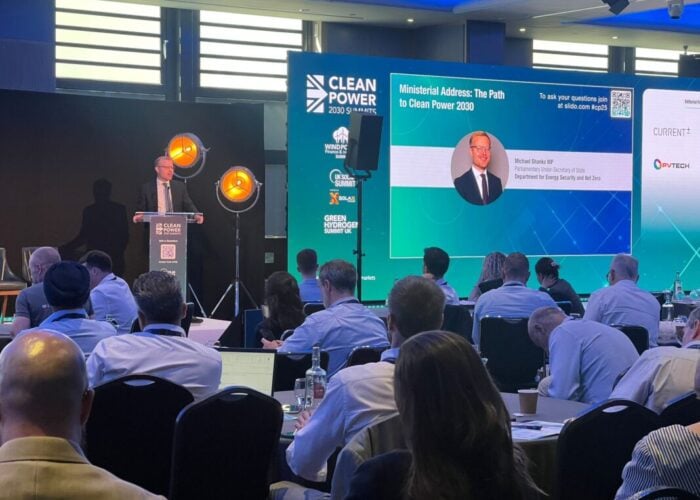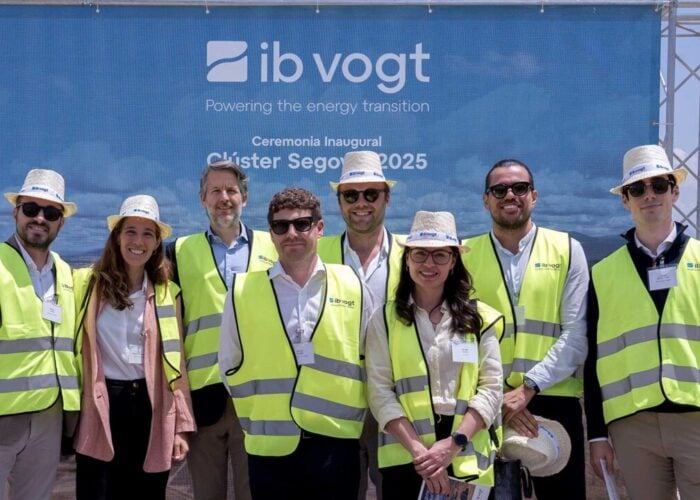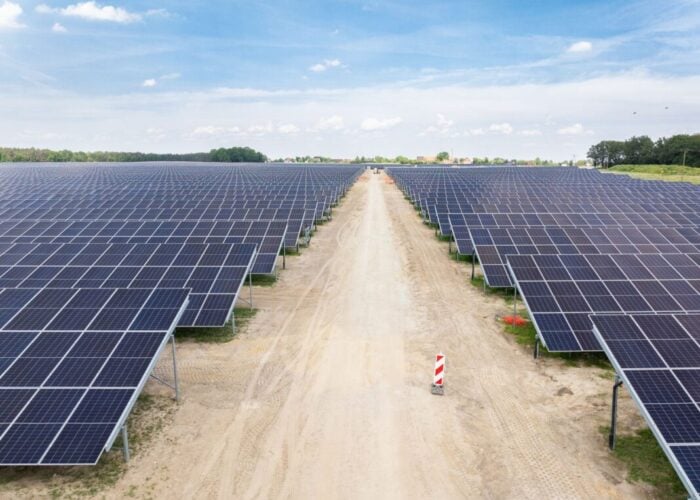Ghana has put the brakes on its utility-scale solar market with the West African country establishing a temporary cap of 150MW.
Individual projects vying for support under Ghana’s solar feed-in tariff (FiT) are to be restricted to a maximum of 20MW within that overall limit until the country’s first large PV projects are built and their impact on its grid assessed.
Unlock unlimited access for 12 whole months of distinctive global analysis
Photovoltaics International is now included.
- Regular insight and analysis of the industry’s biggest developments
- In-depth interviews with the industry’s leading figures
- Unlimited digital access to the PV Tech Power journal catalogue
- Unlimited digital access to the Photovoltaics International journal catalogue
- Access to more than 1,000 technical papers
- Discounts on Solar Media’s portfolio of events, in-person and virtual
Ghana’s authorities have been forced to introduce the cap after being overwhelmed with applications for generation licences under the country’s fledgling feed-in tariff programme.
Details of the measure emerged yesterday at the first day of the Solar & Off-Grid Renewables West Africa conference taking place in Ghana’s capital, Accra.
Addressing the conference, Ghana’s deputy minister for power, John Jinapor, said he was encouraged by the “overwhelming interest” among investors in utility-scale solar in Ghana, but said the imposition of restrictions had been made necessary to “maintain the integrity of the national grid”.
He said the 150MW cap would be in place for the “short to medium term” for PV projects not incorporating grid stability or storage measures. Individual projects will be restricted to 20MW for the main Ghana Grid Co transmission network or 10MW for distribution network projects, Jinapor said.
“Let me emphasise that these are only interim measures and would be reviewed from time to time as the grid network is upgraded. I have directed the Energy Commission to ensure strict adherence to the above provisions,” he added.
The overall and individual project cap raised questions over the future viability of the Nzema project announced two years ago, which at 155MW exceeds both. However, the company confirmed to PV Tech that it would be unaffected. When the project was first revealed in December 2012 by its British developer, Blue Energy, it was billed as Africa’s largest planned PV power plant. It attracted significant publicity and appeared to herald Ghana’s arrival on the scene as a new torchbearer for solar in Sub-Saharan Africa.
“Blue Energy has continually received assurances from the relevant Government Ministers and regulatory officials that the permits, consents and approvals that Nzema solar project has received are valid and will not be amended,” said Doug Coleman, project director at Blue Energy.
“It is not surprising that in the development and delivery of government policy in any country, there will be differing views amongst civil servants on how that policy should be implemented,” added Coleman. “What should be remembered is that the Nzema solar project started the permitting, approval and consent process in early 2011 at a time when the mechanisms for the delivery of renewable energy projects were in their infancy in Ghana.”
Interest in the FiT, introduced under Ghana’s 2011 renewable energy, was such that a pipeline of applications soon built up to 29 projects totalling some 2,155MW. But that level of deployment was soon revealed to be far more than Ghana’s limited grid was capable of handling.
Speaking to PV Tech, Ghana’s director of Renewable energy, Wisdom Ahiataku-Togobo, said a study of Ghana’s grid capacity completed last year with the support of the German government had revealed potential to support 250MW of solar.
However, he said the Energy Commission, Ghana’s power regulator, had opted for a lower initial cap of 150MW over two to three years to allow time for assessment.
“The information we have received from the energy commission is that in order to maintain the integrity of the grid, these are the limits that have been set in collaboration with Ghana Grid Co,” Ahiataku-Togobo said. “If after 150MW we realise the impact is not significant, it will open up and be expanded.”
Ghana’s first competitive tender
As part of the 150MW projects falling with the cap, Ahiataku-Togobo revealed that the Ghanaian authorities were planning to hold what would be the country’s first competitive solar tender.
He said the tender would be for one 20MW project and was aimed at establishing whether the introduction of a competitive process could drive down the price of solar energy in Ghana.
He cited the example of the United Arab Emirates where a recent tender resulted in what is thought to the lowest price ever bid for a solar project.
“We believe that is going to help us get the least cost option. If we are able to do that and it comes so low, we will use that as the benchmark,” Ahiataku-Togobo said, adding that the power minister would reveal details of the tender “very soon”.







